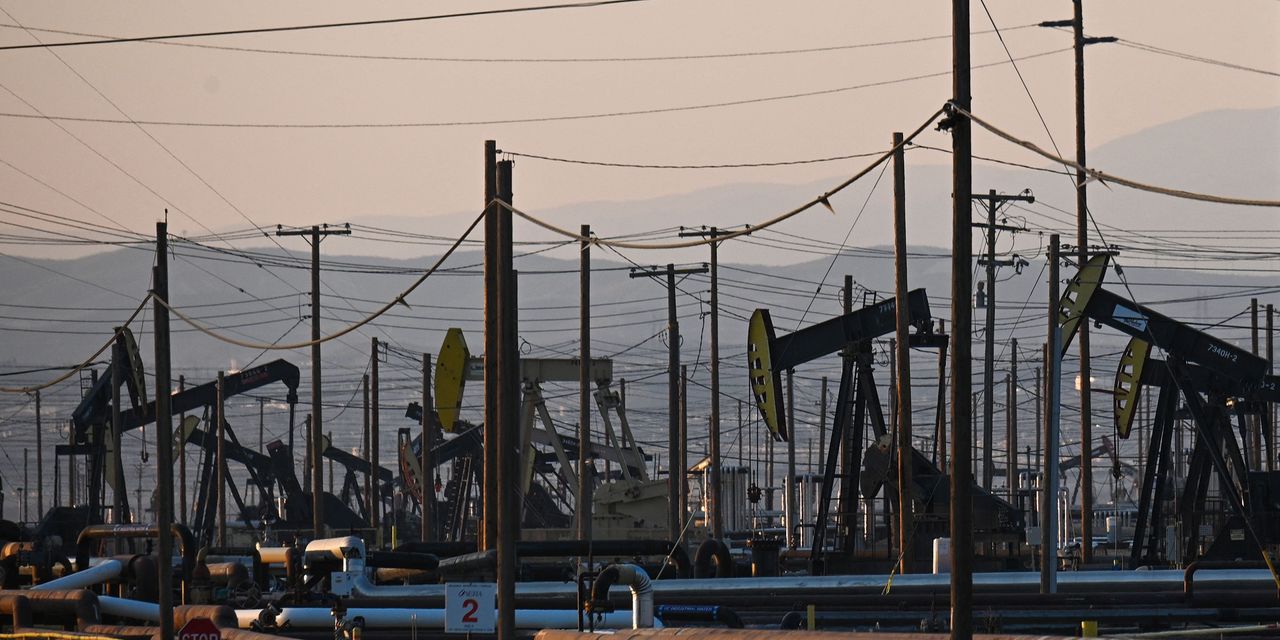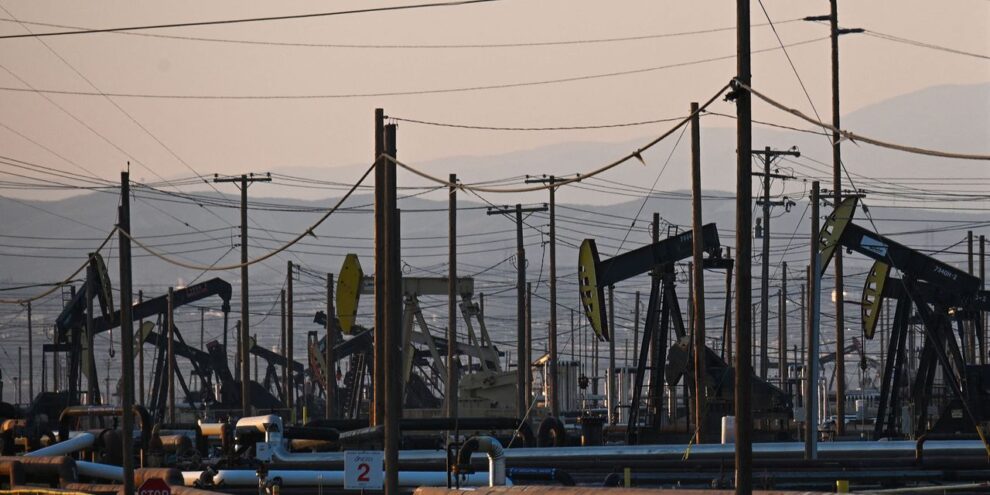
U.S. crude-oil futures ended lower on Monday, but off the session’s lows on renewed worries about tight supplies. Natural-gas prices, meanwhile, climbed to a fresh 14-year high as fears about shortages in Europe also impacted the U.S. market.
Price action
- West Texas Intermediate crude for September delivery CLU22, -0.11% CL.1, -0.11% fell 54 cents, or 0.6%, to settle at $90.23 per barrel on the New York Mercantile Exchange after trading as low as $86.60. The contract expired at the end of the session. The new front month October contract CLV22, +0.19% CL00, +0.19% settled at $90.36, down 8 cents, or nearly 0.1%.
- October Brent crude BRNV22, +0.31% declined by 24 cents, or almost 0.3%, at $96.48 per barrel on ICE Futures Europe.
- Back on Nymex, September gasoline RBU22, -4.06% ended at $2.8912, down 13 cents, or 4.2% per gallon, while September heating oil HOU22, +1.89% added 8 cents, or 2.1%, to $3.7762 a gallon.
- September natural-gas prices NGU22, +4.56% rose 3.7% to $9.68 per million British thermal units, the highest front-month finish since July 2008, according to Dow Jones Market Data.
What analysts are saying
Crude-oil prices ended lower Monday, getting “knocked down” over demand concerns, said Colin Cieszynski, chief market strategist at SIA Wealth Management.
The People’s Bank of China cut its benchmark loan prime rate on Monday in a move to support its slowing economy, after it already lowered two other key policy rates last week.
That’s raised concerns that “China could be falling into recession, and that other countries could eventually follow suit, which could reduce global demand” for oil, Cieszynski told MarketWatch.
Traders also digested comments from Prince Abdulaziz bin Salman, Saudi Arabia’s minister of energy. In a written response to questions from Bloomberg, he said the Organization of the Petroleum Exporting Countries and the group’s allies, together known as OPEC+, has the “commitment, the flexibility and the means” within its Declaration of Cooperation to deal with challenges in the market, including cutting production “at any time and in different forms.”
But the oil market is about as “tight as it’s ever been” with spare production capacity at a historic low, Phil Flynn, senior market analyst at The Price Futures Group, told MarketWatch in an email, as oil prices pared losses ahead of the Nymex settlement.
OPEC+ missed its output targets by 2.9 million barrels a day in July, amid sanctions on some members and low investment by others, Reuters reported Monday, citing sources.
“We’re not seeing any signs of that major demand destruction event” at this time, but with supplies as tight as they are going into winter, and record-breaking natural-gas prices in Europe and the ability of the Russians to cut supply off at any moment, that should keep the energy market “on edge,” Flynn said.
Natural-gas rally
Natural gas stole the spotlight Monday as prices in the U.S. surged to fresh 14-year highs. A team of energy analysts at ING attributed the move in gas prices to Russia’s decision to halt flows to Europe along the Nord Stream 1 pipeline.
Also see: Why natural-gas prices have climbed to a 14-year high
Gazprom announced late last week that its Nord Stream 1 pipeline will come to a halt for three days of maintenance. The “real concern for the market is whether flows will resume after this period,” the ING analysts said in a note.
Over in the U.S., the August/September period has “historically been a seasonally stronger time of the year for natural gas, related to a combination of potential supply disruptions from hurricanes and anticipation of the upcoming home heating season,” said SIA Wealth Management’s Cieszynski.
This year, however, “issues related to Russian natural gas supply into Europe have also been a factor,” he said.






